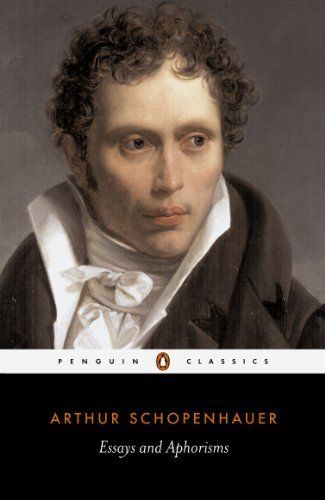
Essays and Aphorisms
One of the greatest philosophers of the nineteenth century, Schopenhauer (1788-1860) believed that human action is determined not by reason but by 'will' - the blind and irrational desire for physical existence. This selection of his writings on religion, ethics, politics, women, suicide, books and many other themes is taken from Schopenhauer's last work, Parerga and Paralipomena, which he published in 1851. These pieces depict humanity as locked in a struggle beyond good and evil, and each individual absolutely free within a Godless world, in which art, morality and self-awareness are our only salvation. This innovative - and pessimistic - view has proved powerfully influential upon philosophy and art, directly affecting the work of Nietzsche, Wittgenstein and Wagner among others.
Reviews
Kira L@krispyk
Sameer Vasta@vasta
ame @sunflowertheft
Seth Kalback@skalback
Farhad Mammadov@farhad
Ana@anaaniri
Joshua Line@fictionjunky
ego calamus@nova101